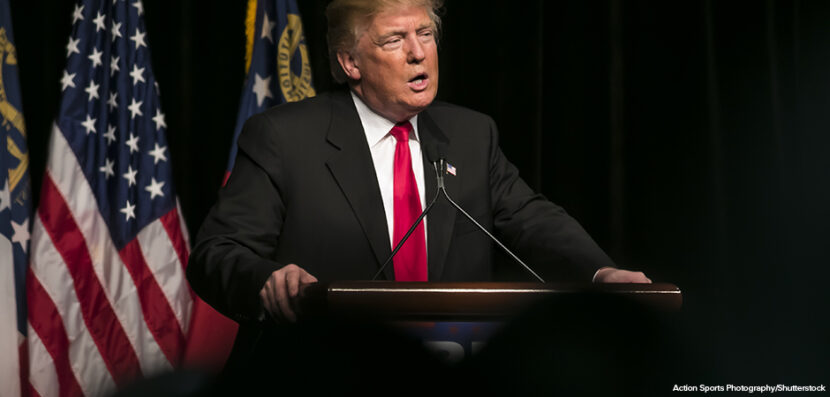
Understanding Trump’s Third Term Talk
Over the past month, President Donald Trump has said several times that he would consider running for a third term as president. Meanwhile, his company, The Trump Organization, has also been selling “Trump 2028” hats. He has since stated that his remarks weren’t serious. This week, Election Central takes a closer look at what history and legal experts have to say about presidential terms.
Constitutional Concerns
The 22nd Amendment to the U.S. Constitution states that no one can be elected to the office of president more than twice.
But why does the Constitution hold a president to two terms? There is a historical precedent. Some of the original Framers of the Constitution favored lifetime appointments for presidents. But they envisioned a president elected by Congress (not the voters). Otherswanted to avoid establishing another monarchy by creating a “president-for-life” system. So they supported term limits. But none of this was clearly stated in the Constitution when it was written and ratified by the states.
However, the first U.S. president, George Washington, served two terms, which unofficially set a precedent (a significant example) for later presidents to follow.
Some early presidents –including Ulysses S. Grant and Theodore Roosevelt– raised the limits of this rule, but without success. Leaders of the Republican Party attempted to convince Grant to run for a third term during the later years of the post-Civil War Reconstruction era. But Grant refused. Teddy Roosevelt (who assumed the presidency after William McKinley’s assassination), ran for reelection to a full term two more times. But he lost the 1908 election.
Then, in 1940, Franklin Delano Roosevelt became the first president to be elected to a third term, and then a fourth term. While FDR won a clear victory in the Electoral College every time, his share of the popular vote dropped with each election. After his death, Congress began discussion on what would become the 22nd Amendment so that a similar situation couldn’t happen again.
Could it be Repealed?
Since the passage of the 22nd Amendment in 1951, there has been occasional talk of repealing it. Ronald Reagan, for example, said publicly that he was in favor of repealing it, not for himself but for future presidents.
Overturning the 22nd Amendment would require a two-thirds approval from both the Senate and the House of Representatives. It would also need to be approved by three-quarters of the country’s state governments. Right now, the Republican Party controls both chambers of Congress, but not by a two-thirds majority. Also, Democrats control eighteen of the fifty state legislatures. So, it is extremely unlikely that the 22nd Amendment could be repealed this way.
A Constitutional Loophole?
However, supporters of a third Trump term say that there is a loophole in the Constitution that would allow a third term to happen–though this theory hasn’t been tested in court. According to these supporters, the 22nd Amendment only states that someone can’t be “elected” to more than two terms. But it says nothing about succession. What if the person could become the president without being elected? According to this unusual theory, in 2028, Trump wouldn’t be able to run for president himself, but could he run as the vice-presidential candidate for someone else (such as now-Vice President, J.D. Vance)?
If a Vance-Trump ticket won in 2028 (which is, of course, trying to predict a very complicated future), then it raises the question of whether Vance could take the oath of office and then resign, allowing Vice President Trump to take over as president?
It’s an odd set of future events–especially because no one elected president has ever willingly given up the authority of the White House after being elected. (Richard Nixon did resign near the end of his second term in 1974, but he was driven to that decision by the Watergate scandal.)
Other supporters have proposed taking a more traditional path to a third Trump term. In January 2025, Republican Representative Andy Ogles introduced a resolution for a constitutional amendment that would allow a president to serve up to three “non-consecutive” terms. If this amendment was ratified, then Trump would be eligible to run again in 2028, since his first two terms were not consecutive (meaning that one did not immediately follow the other). However, many lawmakers on both sides of the political aisle have already voiced objections to altering the Constitution in this way.


